
 7:56
7:56
2023-11-07 11:43

 2:57
2:57

 2:57
2:57
2025-05-02 10:46

 14:15
14:15

 14:15
14:15
2024-05-03 18:57
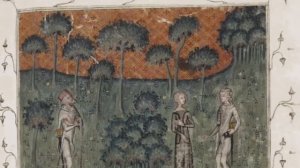
 20:00
20:00

 20:00
20:00
2024-09-22 17:57

 4:58
4:58

 4:58
4:58
2025-09-21 08:08

 25:45
25:45

 25:45
25:45
2024-05-07 02:25
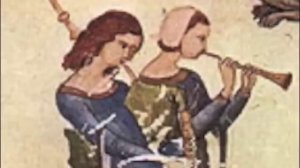
 3:09
3:09

 3:09
3:09
2024-06-03 12:24

 2:42
2:42

 2:42
2:42
2024-09-17 23:16

 23:15
23:15

 23:15
23:15
2023-11-18 08:09
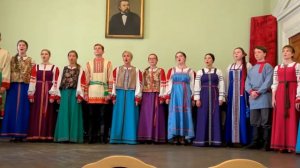
 2:30
2:30

 2:30
2:30
2024-03-14 16:44

 12:56
12:56

 12:56
12:56
2024-04-07 20:46

 19:08
19:08

 19:08
19:08
2024-01-16 22:09

 24:10
24:10

 24:10
24:10
2023-12-02 16:19
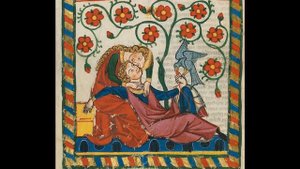
 2:04
2:04

 2:04
2:04
2024-07-09 05:07
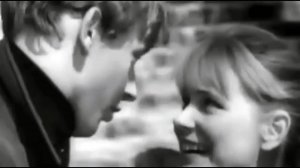
 4:01
4:01

 4:01
4:01
2025-09-13 00:04

 2:14
2:14

 2:14
2:14
2025-09-19 09:50

 2:01
2:01

 2:01
2:01
2025-09-13 15:01

 47:20
47:20
![KhaliF - Где бы не был я (Премьера клипа 2025)]() 2:53
2:53
![Жалолиддин Ахмадалиев - Тонг отгунча (Премьера клипа 2025)]() 4:44
4:44
![Азиз Абдуллох - Аллохнинг айтгани булади (Премьера клипа 2025)]() 3:40
3:40
![Бонухон & Сардорбек Машарипов - Шанс (Премьера клипа 2025)]() 3:28
3:28
![MEDNA - Алё (Премьера клипа 2025)]() 2:28
2:28
![Алмас Багратиони - Сила веры (Премьера клипа 2025)]() 3:18
3:18
![Рейсан Магомедкеримов, Ренат Омаров - Бла-та-та (Премьера клипа 2025)]() 2:26
2:26
![Anette - Erjanik em (Official Video 2025)]() 3:36
3:36
![Бьянка - Бренд (Премьера клипа 2025)]() 2:29
2:29
![Zhamil Turan - Капали (Премьера клипа 2025)]() 3:08
3:08
![Зафар Эргашов & Фируз Рузметов - Лабларидан (Премьера клипа 2025)]() 4:13
4:13
![Джатдай - Забери печаль (Премьера клипа 2025)]() 2:29
2:29
![Зара - Я несла свою беду (Премьера клипа 2025)]() 3:36
3:36
![Сергей Сухачёв - Розовый туман (Премьера клипа 2025)]() 3:13
3:13
![ARTIX - Ай, джана-джана (Премьера клипа 2025)]() 2:24
2:24
![Зафар Эргашов - Мусофирда каридим (Премьера клипа 2025)]() 4:58
4:58
![Аля Вайш - По кругу (Премьера клипа 2025)]() 2:37
2:37
![Tural Everest - Ночной город (Премьера клипа 2025)]() 3:00
3:00
![Алим Аталиков - Как царица (Премьера клипа 2025)]() 3:25
3:25
![Сергей Одинцов - Девочка любимая (Премьера клипа 2025)]() 3:56
3:56
![Любимец женщин | Roger Dodger (2002)]() 1:41:29
1:41:29
![Элис, дорогая | Alice, Darling (2022)]() 1:29:30
1:29:30
![Лучшее Рождество! | Nativity! (2009)]() 1:46:00
1:46:00
![Пойман с поличным | Caught Stealing (2025)]() 1:46:45
1:46:45
![Непрощённая | The Unforgivable (2021)]() 1:54:10
1:54:10
![Заклятие 4: Последний обряд | The Conjuring: Last Rites (2025)]() 2:15:54
2:15:54
![Дикари | The Savages (2007)]() 1:54:19
1:54:19
![F1 (2025)]() 2:35:53
2:35:53
![Порочный круг | Vicious (2025)]() 1:42:30
1:42:30
![Храброе сердце | Braveheart (1995)]() 2:57:46
2:57:46
![Терминатор 2: Судный день | Terminator 2: Judgment Day (1991) (Гоблин)]() 2:36:13
2:36:13
![Только ты | All of You (2025)]() 1:38:22
1:38:22
![Когда ты закончишь спасать мир | When You Finish Saving the World (2022)]() 1:27:40
1:27:40
![Девушка из каюты №10 | The Woman in Cabin 10 (2025)]() 1:35:11
1:35:11
![Фантастическая четвёрка: Первые шаги | The Fantastic Four: First Steps (2025)]() 1:54:40
1:54:40
![Сверху вниз | Highest 2 Lowest (2025)]() 2:13:21
2:13:21
![Дом из динамита | A House of Dynamite (2025)]() 1:55:08
1:55:08
![Хищник | Predator (1987) (Гоблин)]() 1:46:40
1:46:40
![Тот самый | Him (2025)]() 1:36:20
1:36:20
![Одноклассницы | St. Trinian's (2007)]() 1:36:32
1:36:32
![Тодли Великолепный!]() 3:15
3:15
![Команда Дино Сезон 2]() 12:31
12:31
![Минифорс. Сила динозавров]() 12:51
12:51
![Чемпионы]() 7:21
7:21
![МегаМен: Полный заряд Сезон 1]() 10:42
10:42
![Сборники «Приключения Пети и Волка»]() 1:50:38
1:50:38
![Артур и дети круглого стола]() 11:22
11:22
![Зебра в клеточку]() 6:30
6:30
![Кадеты Баданаму Сезон 1]() 11:50
11:50
![Роботы-пожарные]() 12:31
12:31
![Сандра - сказочный детектив Сезон 1]() 13:52
13:52
![Супер Зак]() 11:38
11:38
![Корги по имени Моко. Новый питомец]() 3:28
3:28
![Агент 203]() 21:08
21:08
![Монсики]() 6:30
6:30
![Пип и Альба. Приключения в Соленой Бухте! Сезон 1]() 11:02
11:02
![Сборники «Оранжевая корова»]() 1:05:15
1:05:15
![Лудлвилль]() 7:09
7:09
![Новое ПРОСТОКВАШИНО]() 6:30
6:30
![Простоквашино. Финансовая грамотность]() 3:27
3:27

 47:20
47:20Скачать видео
| 256x144 | ||
| 640x360 |
 2:53
2:53
2025-10-28 12:16
 4:44
4:44
2025-10-19 10:46
 3:40
3:40
2025-10-18 10:34
 3:28
3:28
2025-10-24 11:20
 2:28
2:28
2025-10-21 09:22
 3:18
3:18
2025-10-24 12:09
 2:26
2:26
2025-10-22 14:10
 3:36
3:36
2025-10-18 10:11
 2:29
2:29
2025-10-25 12:48
 3:08
3:08
2025-10-22 14:26
 4:13
4:13
2025-10-29 10:10
 2:29
2:29
2025-10-24 11:25
 3:36
3:36
2025-10-18 10:07
 3:13
3:13
2025-10-24 12:18
 2:24
2:24
2025-10-28 12:09
 4:58
4:58
2025-10-18 10:31
 2:37
2:37
2025-10-23 11:33
 3:00
3:00
2025-10-28 11:50
 3:25
3:25
2025-10-29 10:18
 3:56
3:56
2025-10-28 11:02
0/0
 1:41:29
1:41:29
2025-08-15 19:31
 1:29:30
1:29:30
2025-09-11 08:20
 1:46:00
1:46:00
2025-08-27 17:17
 1:46:45
1:46:45
2025-10-02 20:45
 1:54:10
1:54:10
2025-08-27 17:17
 2:15:54
2:15:54
2025-10-13 19:02
 1:54:19
1:54:19
2025-08-27 18:01
 2:35:53
2:35:53
2025-08-26 11:45
 1:42:30
1:42:30
2025-10-14 20:27
 2:57:46
2:57:46
2025-08-31 01:03
 2:36:13
2:36:13
2025-10-07 09:27
 1:38:22
1:38:22
2025-10-01 12:16
 1:27:40
1:27:40
2025-08-27 17:17
 1:35:11
1:35:11
2025-10-13 12:06
 1:54:40
1:54:40
2025-09-24 11:35
 2:13:21
2:13:21
2025-09-09 12:49
 1:55:08
1:55:08
2025-10-29 16:30
 1:46:40
1:46:40
2025-10-07 09:27
 1:36:20
1:36:20
2025-10-09 20:02
 1:36:32
1:36:32
2025-08-28 15:32
0/0
 3:15
3:15
2025-06-10 13:56
2021-09-22 22:40
 12:51
12:51
2024-11-27 16:39
 7:21
7:21
2025-10-07 09:00
2021-09-22 21:43
 1:50:38
1:50:38
2025-10-29 16:37
 11:22
11:22
2023-05-11 14:51
 6:30
6:30
2022-03-31 13:09
2021-09-22 21:17
2021-09-23 00:12
2021-09-22 20:39
2021-09-22 22:07
 3:28
3:28
2025-01-09 17:01
 21:08
21:08
2025-01-09 16:39
 6:30
6:30
2022-03-29 19:16
2021-09-22 23:36
 1:05:15
1:05:15
2025-09-30 13:45
 7:09
7:09
2023-07-06 19:20
 6:30
6:30
2018-04-03 10:35
 3:27
3:27
2024-12-07 11:00
0/0

